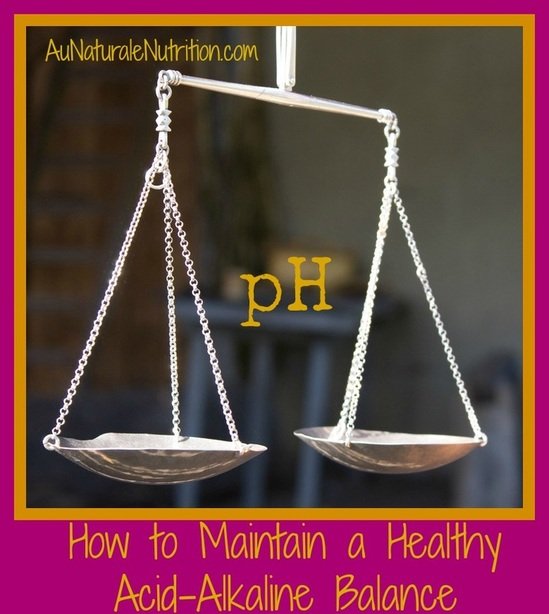
When your body has a balanced pH, it thrives and functions much better. When it is out of balance, diseases are able to linger and spread more effectively. This post outlines the importance of a healthy acid/alkaline balance in the body and offers various tips for achieving and maintaing this balance like eating real foods and reducing stress. You do not want to miss it!
- Eating an acid-forming diet
- Stress
- Toxins
- Other immune system reactions & metabolic regulations that create acid by-products
The blood needs to maintain a pH range of between 7.35 and 7.45 at all times. If not, it would be a dire medical emergency. A difference of 1/10 of a point outside the normal range can reduce enzyme activity 10-fold!
The body works hard to maintain this acid-alkaline balance, and it is regulated by using mineral stores from the bloodstream and lymphatic fluids. The minerals buffer the acids. The urine pH is ideally a neutral 7.0, which means there are enough minerals present to buffer (alkalize) the acids. However, if the mineral stores from the bloodstream and fluids are all used up, the body must pull them from your tissues, organs and glands, and then the bones. A pH lower than 7.0 indicates an acidic environment.
What happens in acidic body?
- Your cells react to an acidic environment by becoming sluggish; wastes build up, toxins aren’t excreted, and nutrients aren’t utilized.
- Unhealthy, acidic, toxic, weak cells lead to a sick body and organs. Acidity has been linked to arthritis, mental problems, asthma, allergies, constipation, diarrhea, kidney and liver problems, fatigue, and many chronic diseases.”


Leave a Reply